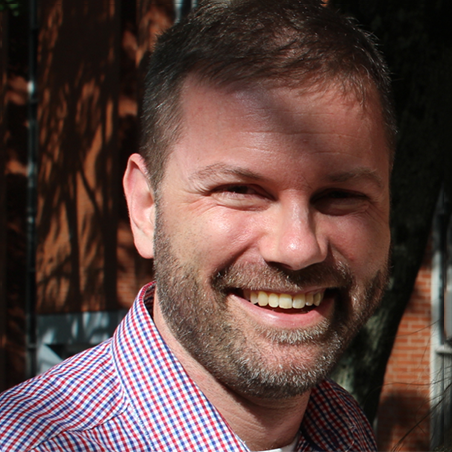Stefan Leslie
CEO at Research Nova Scotia
Bachelor of Arts, (Hons), International Development, 1996
I have always been drawn to these large, complicated, thorny issues.
Stefan Leslie wasn’t going to wait for the big one to hit, shaking Canada’s west coast. It would be too late then.
“It is likely that there will be a seismic event creating a tsunami; we just don’t know when,” he says. “It would impact shipping lanes and ports in BC. Our interest is to do an assessment of the vulnerabilities and determine the contingencies.”
That’s what Stefan oversaw as Executive Director the Marine Environmental Observation, Prediction and Response Network (MEOPAR). It’s a not-for-profit national organization that funds research “most typically between government, academia or private industry. We like to bring people together in new and unusual ways,” he says.
In the case of the tsunami threat, MEOPAR and the province of British Columbia brought together researchers from BC, the state of Washington and Nova Scotia. They looked to improve disaster preparation and infrastructure—information that could save lives and help rebuild communities. With that research, Stefan says, they looked at “how lessons learned on the west coast can be applied to the east coast in the event of a major hurricane for instance.”
Stefan left MEOPAR at the end of 2018 for a new challenge—CEO of the newly created Research Nova Scotia (RNS). The corporation was established by the provincial government to “foster research and development contributing to improved social and economic outcomes for Nova Scotians.”
Stefan says, “I have always been drawn to these large complicated thorny issues that aren’t easily resolved and don’t necessarily have an obvious outcome. He smiles when he says tackling these issues is grounded in the Foundation Year Program (FYP).
“When I arrived at King’s and understood how FYP courses were put together, I realized that is the way I like to learn. It’s a way of approaching things in an interdisciplinary way that I found very appealing.”
After FYP, Stefan earned a degree in International Development Studies at Dalhousie and went on to get his Master’s degree. He worked as a consultant for a couple of years then joined the federal Department of Fisheries and Oceans (DFO). From there he was off to New Zealand and a position with the Ministry of Fisheries.
“I had proven my capabilities at DFO. I had a background that fit—in particular matching an understanding of fisheries, fisheries management and fisheries ecology with economics.”
Stefan spent four years in New Zealand before returning to Canada and DFO once again. Before joining MEOPAR and then RNS, this last position at DFO was in another leadership role—as Regional Director of Fisheries management (Maritimes Region).
Over the years Stefan has hired many people. He sometimes had the opportunity to hire people with a different set of skills—skills typical of a King’s grad, completing the circle.
“I have hired a good number of those who I would describe as having a humanities background – people who studied comparative religion, archivists, medieval literature specialists—all manner of folks who have those interests. I didn’t hire them for their specialized knowledge in that field, but because there is a certain quality to those individuals. I like the way they think, and perhaps we share an approach that helps us tackle those large thorny issues.”
Posted October 2019
 Connect with Stefan Leslie
Connect with Stefan Leslie